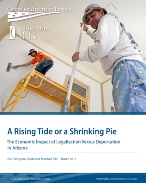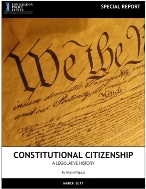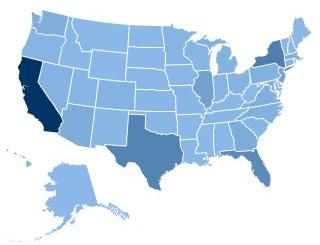 Our national debate over urgently needed immigration reform is now careening through our state legislatures, city halls, and town councils due to political gridlock at the federal level. And nowhere is that debate more contentious than in Arizona, where in April of last year the state’s legislature sought to rid the state of undocumented immigrants with passage of S.B. 1070. The law is specifically designed to trigger a mass exodus of undocumented immigrants from the state by making “attrition through enforcement the public policy of all state and local government agencies in Arizona.”
Our national debate over urgently needed immigration reform is now careening through our state legislatures, city halls, and town councils due to political gridlock at the federal level. And nowhere is that debate more contentious than in Arizona, where in April of last year the state’s legislature sought to rid the state of undocumented immigrants with passage of S.B. 1070. The law is specifically designed to trigger a mass exodus of undocumented immigrants from the state by making “attrition through enforcement the public policy of all state and local government agencies in Arizona.”
The economic analysis in this report shows the S.B. 1070 approach would have devastating economic consequences if its goals were accomplished. When undocumented workers are taken out of the economy, the jobs they support through their labor, consumption, and tax payments disappear as well. Particularly during a time of profound economic uncertainty, the type of economic dislocation envisioned by S.B. 1070-type policies runs directly counter to the interests of our nation as we continue to struggle to distance ourselves from the ravages of the Great Recession.
Conversely, our analysis shows that legalizing undocumented immigrants in Arizona would yield a significant positive economic impact. Based on the historical results of the last legalization program under the Immigration Reform and Control Act of 1986, our analysis shows a similar program would increase wages not only for immigrants but also for their native-born co-workers. This would generate more tax revenue and more consumer and business spending, support-ing additional jobs throughout the economy.Read more...
Published On: Thu, Mar 24, 2011 | Download File





